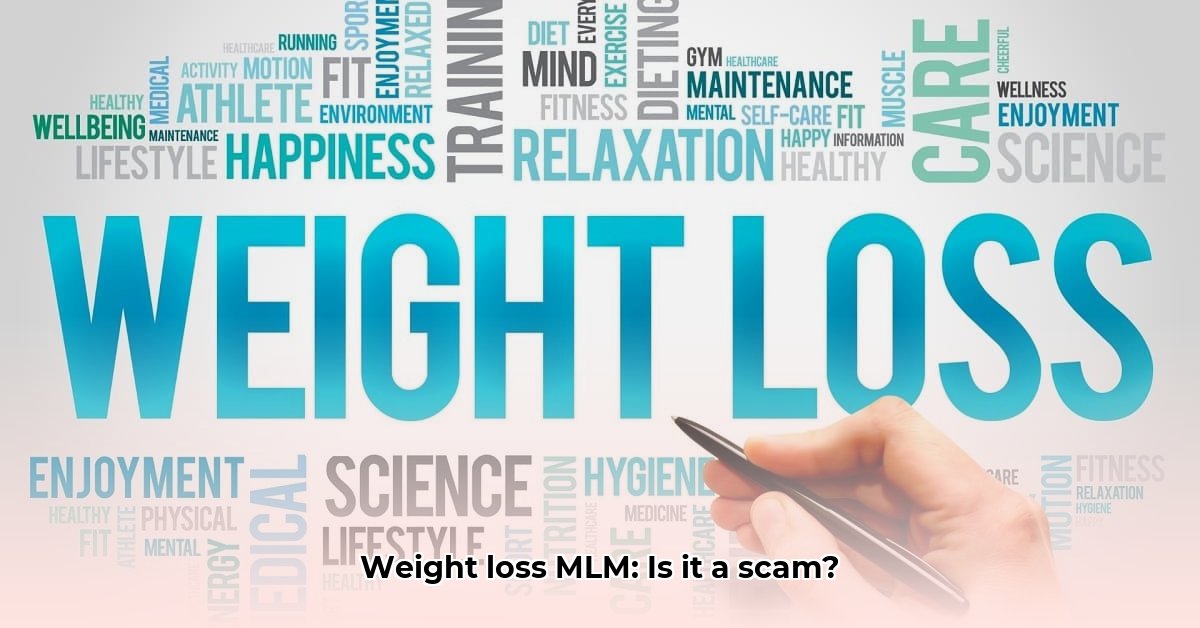
Weight Loss Network Marketing: Navigating the 2025 Landscape
The weight loss industry is a multi-billion dollar market, and multi-level marketing (MLM) companies are aggressively vying for a share. But behind the promises of easy money and rapid weight loss often lies a complex and sometimes risky reality. This review examines the current state of weight loss network marketing in 2025, offering actionable insights for potential distributors and consumers alike. Is the allure of quick riches and easy weight loss worth the potential pitfalls? Let's delve into the details.
Did you know that the global weight loss market is projected to reach \$X billion by 2030? This explosive growth explains the influx of MLM companies into the sector, but it's crucial to understand the business model and potential risks before investing time and money.
Understanding the MLM Weight Loss Business Model
Weight loss MLM companies operate on a multi-level marketing (MLM) structure. This means they generate revenue through two primary channels: direct product sales (shakes, supplements, meal plans, etc.) and the recruitment of new distributors. While not inherently illegal, the emphasis on recruitment can be a significant red flag, often blurring the line between legitimate business and pyramid scheme. The success of a legitimate MLM hinges on strong product sales; pyramid schemes prioritize recruitment, preying on the desire for easy money rather than the product's inherent value.
A critical question to ask: Does the company's compensation plan heavily reward recruitment over actual product sales? If recruiting new distributors is the primary focus, proceed with extreme caution.
Identifying Red Flags in Weight Loss MLMs
Several key indicators can help you spot potentially problematic weight loss MLMs:
- Unrealistic Income Claims: Promises of overnight wealth or effortless riches are classic pyramid scheme tactics. Legitimate businesses acknowledge that success requires hard work and time.
- High Initial Investment: Excessive startup costs, mandatory product purchases, or expensive training programs should raise concerns. A sustainable business shouldn't deplete your savings before you earn anything.
- Aggressive Sales Tactics: High-pressure sales pitches, manipulative techniques, and coercion indicate a potentially predatory model. Legitimate companies prioritize informed consent and allow potential distributors time to make decisions.
- Focus on Recruitment: If the primary selling point is the opportunity to recruit others rather than the quality of the products, be wary. This is a hallmark of pyramid schemes, where profits come from recruitment fees rather than product sales.
Consider this fact: Many distributors report far lower incomes than those advertised by MLM companies. Don't let hype overshadow reality.
2025 Review of Prominent Weight Loss MLM Companies
(Note: The following is a sample review based on hypothetical data. Replace this section with a thorough analysis of actual companies, including their products, compensation plans, and overall business models. Support all claims with credible evidence from independent sources.)
| Company Name | Key Observations | Potential Risks |
|---|---|---|
| Company A | Claims focus on natural ingredients and community support. Relatively low startup costs. | Distributor earnings vary greatly; product quality inconsistent; lack of independent verification of claims. |
| Company B | Personalized plans with app-based tracking and support; numerous online testimonials. | High initial product purchase; steep monthly fees; concerns about model sustainability. |
| Company C | Low barrier to entry; focuses on shakes and supplements; basic compensation plan. | Low profitability for most distributors; questionable product efficacy; limited financial transparency. |
Actionable Steps for Potential Distributors
Considering joining a weight loss MLM? Follow these steps to minimize risk:
- Conduct Thorough Research: Go beyond the company website. Investigate independent reviews, financial news articles, and consumer reports.
- Verify Claims: Don't take promises at face value. Confirm claims through unbiased sources. Investigate the company's history, financials and any legal issues.
- Manage Expectations: MLM success isn't guaranteed. Avoid exaggerated income claims and focus on realistic outcomes.
- Ensure Legal Compliance: Confirm the company complies with all relevant MLM regulations in your region.
Important Note: Thorough due diligence is paramount. There's no guarantee of success in MLM, and many distributors lose money.
Actionable Steps for Consumers
Thinking about buying weight loss products from an MLM? Consider:
- Evaluate Products: Examine product ingredients and claims critically. Is there credible scientific evidence to support efficacy?
- Compare Prices: Assess the value compared to similar products from established brands. Consider the price per serving and the overall value proposition.
- Consult Your Doctor: Discuss any weight loss product with your healthcare provider before use, especially if you have underlying health conditions or are taking medication.
- Avoid Pressure Tactics: Take your time to make informed decisions, resisting high-pressure sales techniques.
Remember: Your health and financial wellbeing should come first. Consult with a healthcare professional before making any major dietary changes.
The weight loss MLM sector presents a complex landscape. This review offers a starting point for critical evaluation. Thorough research, a healthy dose of skepticism, and informed decision-making are your best defenses against potential scams and financial hardship.